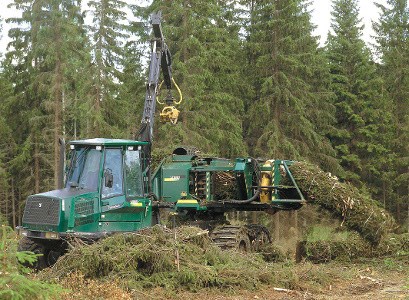On the eve of an election, Queen’s Park has finally come through with its long-awaited promise to share revenues from natural resources with First Nations.
The provincial government is calling the agreement the first of its kind. But it doesn’t come into force until 2019.
The province announced May 3 that it’s struck agreements with 32 First Nation communities in the North, enabling them directly benefit from forestry and mining operations near their communities.
Starting in the fall of 2019, the partner First Nations will receive 45 per cent of government revenues from forestry stumpage, 40 per cent of the annual mining tax and royalties from active mines at the time the agreements were signed, and 45 per cent from future mines in the areas covered by the agreements.
The release said First Nations will have full control of how these funds are dispersed for support economic development, education, health, community and cultural priorities.
The communities were represented by Grand Council Treaty No. 3, Wabun Tribal Council and Mushkegowuk Council.
"These agreements are a historic moment for the province of Ontario. Resource revenue sharing represents the commitment Ontario has to reconciliation and will support economic development opportunities to build healthy and prosperous communities across Ontario’s north,” said Natural Resources and Forestry Nathalie Des Rosiers.
"Resource revenue sharing provides a sustained source of funding for First Nations that will be directed towards local community priorities,” said Northern Development and Mines Minister Michael Gravelle.
‘These agreements are a positive step forward and an important part of Ontario’s journey of reconciliation with Indigenous peoples."
"Sharing the wealth generated through resource development in the traditional territories of the First Nations member to Wabun has been among the primary goals of our leadership for decades,” said Jason Batise, Wabun Tribal Council’s executive director.
“Only through the political resolve of Ontario, does this long outstanding partnership between our First Nations and Ontario occur. I would further recognize the Chiefs and member First Nations of the Wabun Tribal Council whose wise leadership guided the process to this successful conclusion. Finally, I would like to acknowledge the many dedicated members of the Ontario Public Service and the Wabun Tribal Council advisors whose significant efforts, diligence and dedication over the last five months made this sharing a reality."
"Resource revenue sharing is a step in the right direction towards reconciliation,” said Missanabie Cree First Nation Chief Jason Gauthier.
“Our communities are continuing to take steps towards the long-term goals to achieve financial independence and sovereign wealth. We as communities can be ambitious in achieving our goals while retaining our position as the stewards of the land and the First peoples of Turtle Island."
"The Anishinaabe Nation in Treaty #3 has long awaited to receive and become partners in resource revenue sharing, and moving towards acknowledging the Treaty - that we prosper as long as the sun rises and the water runs,” said Ogichidaa Francis Kavanaugh of Grand Council Treaty No. 3.
“The Forestry and Mining Resource Sharing Agreement with the Province of Ontario is an important step towards more meaningful discussions on reconciliation, economic prosperity, and continued improvement in relationship building between the Anishinaabe Nation and the Crown."




